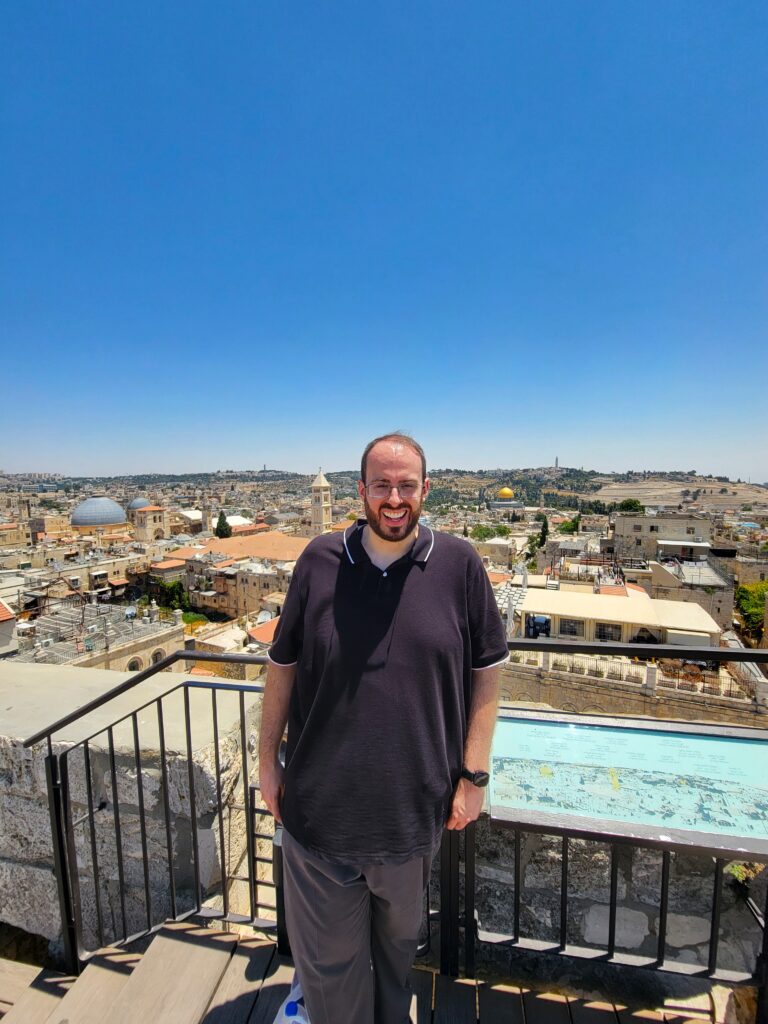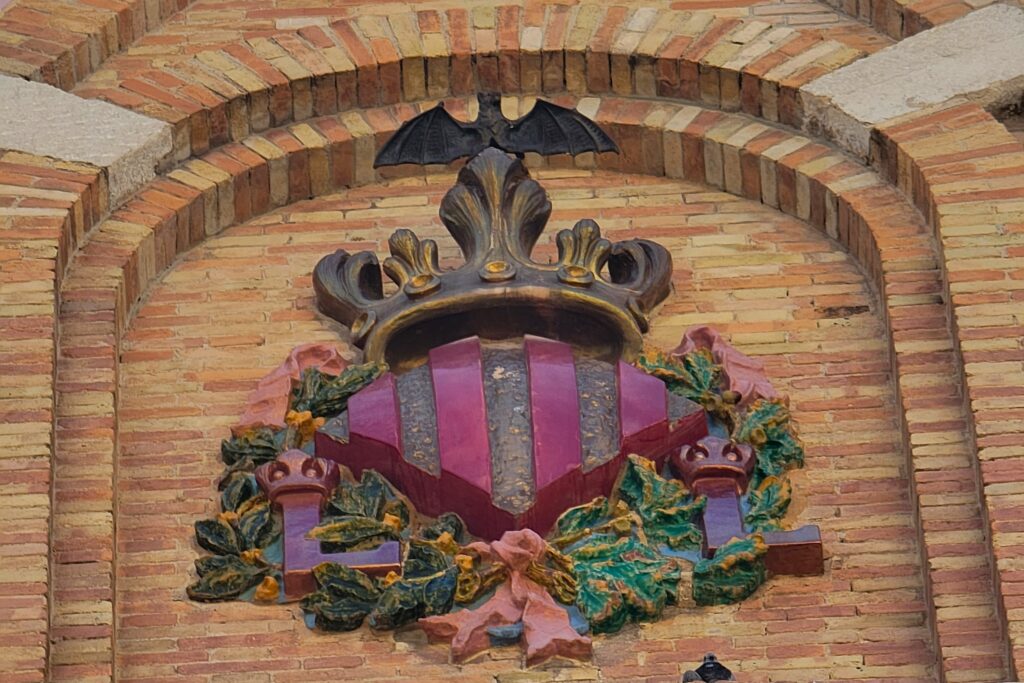The History Department’s Leahey Fellowship and O’Connell Initiative Graduate Travel Grant as well as a Student Support Grant from the Graduate School of Arts and Sciences and travel aide from the Yad Izhak Ben-Zvi Institute allowed PhD Candidate Michael J. Sanders to spend most of July 2023 abroad in Israel and Spain. In Israel, Michael presented a paper in Jerusalem at the Ben-Zvi Institute’s international conference, “Jerusalem: From Umbilicus Mundi to the Four Corners of the Earth and Back.” Encouraged to apply by one of the New York Public Library-Fordham Fellows in Jewish Studies, Prof. Eyal Ben-Eliyahu, Michael was one of the few graduate students chosen to participate in the conference. Michael’s paper, “From Santiago to the Holy Land: Itinera per Hispaniam to Jerusalem in Iberian Political Culture (1100–1300),” examined the origins of the Spanish Route—various itineraries proposed throughout the Middle Ages and Early Modern Period that took crusaders from the Iberian Peninsula (modern-day Spain and Portugal) across North Africa or the Mediterranean Sea to Jerusalem. This little-known idea initially arose from the minds of Santiago de Compostela’s first archbishop, Diego Gelmírez, and the Aragonese king, Alfonso the Battler. Michael’s presentation, available to watch at https://www.youtube.com/watch?v=TK7mKRMojL0, argued the translation story of the Arca Santa, a famous chest of relics, from the Holy Land to Iberia by Bishop Pelayo of Oviedo, a contemporary of Gelmírez and Alfonso, attested to the Spanish Route’s proliferation throughout twelfth-century Iberia.

The Spanish Route forms an important part of Michael’s dissertation, “Forgotten Roads: Jerusalem in Iberian Political and Religious Culture from Medieval to Modern Times.” This project explores the significance of the city, especially regarding identity, kingship, and empire, for Iberians, chiefly in the kingdoms of León-Castile and Catalonia-Aragon, from 1123 until 1516. After the conference in Israel, Michael traveled to Spain to conduct research for this project, which had been delayed due to the COVID-19 pandemic. First, he visited the city of Valencia to examine medieval and modern material culture that featured bat heraldry. During the Middle Ages, the bat became an apocalyptic symbol for an Iberian king who would usher in the end times by conquering Jerusalem. Second, Michael traveled to Córdoba and looked at manuscripts within the library of the city’s beautiful Mosque-Cathedral. In particular, he was interested in a manuscript compiled by Pedro de Casis, a royal agent at the papal court in Avignon, which demonstrated Castilian designs on Jerusalem during the early fourteenth century. Finally, Michael ended his trip in Madrid, where he analyzed a little-known chronicle by Bishop Gonzalo de Hinojosa at the Royal Library of the Monastery of El Escorial, viewed more bat heraldry in the Royal Armory of Madrid, and consulted some of the holdings in the National Library. Such a wonderful trip, which will help him to complete his dissertation next year and has already enhanced his teaching (as his students last year in UHC: Renaissance to Revolution in Europe and Between Conquest and Convivencia: The Spanish Kingdoms will attest) would not have been possible without the Leahey, O’Connell, Student Support, and Ben-Zvi grants. Michael would like to thank the History Department, GSAS, and Ben-Zvi Institute for all of their support.


